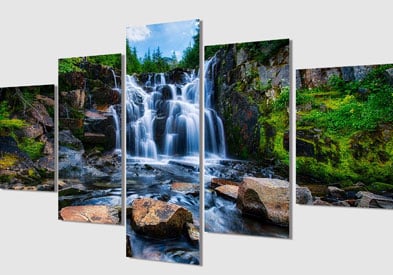November 9, 2016
32nd Sunday of Ordinary Time – Year C
(2 Maccabees 7:1-2, 9-14; Psalm 17; 2 Thessalonians 2:16 – 3:5; Luke 20:27-38)
05/06 November 2016 – St. Austin Parish, Austin, TX
Every November, the Church invites us to explore our beliefs about what happens after we die. That’s why we remember our deceased loved ones every November.
In the three centuries before the birth of Christ, the Jews developed beliefs in angels and the resurrection, as documented in the books of Maccabees, among others. The Jews hadn’t yet agreed on what books would be included in their Bible, so this led to some arguments. The Pharisees accepted these traditions, but the Sadducees only accepted what was written in the ancient Torah. Since the Torah did not speak directly about life after death, the Sadducees did not believe in the resurrection.
In our gospel passage today, the Sadducees try to prove that life after death is ridiculous by taking one law in the Torah to a preposterous extreme. Jesus explains that it’s not the Torah that’s ridiculous; it’s the Sadducees’ expectation that life in heaven will be similar to life on earth.
Let us rejoice that God has mercifully included us in his plans for salvation!
It’s been said that one of our problems as humans is that instead of believing that God made us in his image and likeness, we keep trying make God in our image and likeness.
You’re probably heard this joke before: a first grade girl is drawing a picture. The teacher asks, “What are you drawing, Sally?” The girl replies, “I’m drawing a picture of God.” “But Sally,” the teacher says, “no one knows what God looks like.” The little girl responds, “Well, now they will!”
I have atheist friends who have told me why they don’t believe in God. They describe their understanding of the Christian God – usually a powerful, uncaring, temperamental man who’s more like the mythological Thor or Zeus. I usually respond, “We’re in complete agreement. I don’t believe in that God, either.”
The Sadducees are trying to make an argument to Jesus for why there can’t be life after death. They can’t comprehend how a woman who marries seven men in succession would be married to all seven of them in the afterlife. Jesus’ response is: exactly. You can’t comprehend it, because you’re trying to make heaven into a carbon copy of earth. Our existence in heaven will be very different from how we currently live on earth.
What happens in heaven for those couples who have had a wonderful marriage on earth? What happens for those couples who’ve stuck it out together, even if they weren’t blissfully in love? What about for those people who have had multiple spouses, for whatever reasons? The fact of the matter is, we don’t know.
We want to understand what will happen to us and our loved ones when we die. But when it comes to talking about dying, death, and eternal life, it’s probably more important to approach it from the emotional side than the intellectual side. The reality is, we can’t understand. All we can do is trust in God’s providence.
We know that in heaven, we will be united with God in a powerful and profound way. Our relationships that we forged from our time on earth will still exist, but how we will relate to one another is beyond our comprehension.
In his first letter to the Corinthian Christians, Saint Paul paraphrased a passage from Isaiah that sums it up:
What eye has not seen, and ear has not heard,
and what has not entered the human heart,
what God has prepared for those who love him.
We don’t have a clue what heaven will be like, but we know that our God is a loving God. If we try our best to be disciples of Jesus Christ, we will arrive in heaven on the last day. Whatever God has planned for us there, it is wonderful beyond our wildest imagining.
But as Christians, we’re called to trust God in this lifetime, too. There are some situations that are beyond our ability to fix – like the ongoing massacre in Syria – and we must simply, prayerfully ask God to lead us towards a solution. There are other situations where we know a few small steps we can take – like the divisions among us regarding economics, religion, and race – but we don’t know how God will bring us all together. We must trust that if we do our part, God will do God’s part!
When I was a seminarian on my pastoral year in Columbus, Ohio, I spearheaded a huge, complicated regional reconciliation initiative. After some grueling months of figuring out to organize the effort, we had a wonderful first gathering. My friend Katherine inspired us with these words: “I imagine that God is creating a large, magnificent canvas, and each of us has only a tiny piece of it to paint. We each need to do our part, and trust that the whole creation will be beautiful.”
